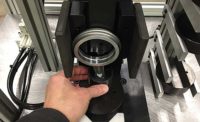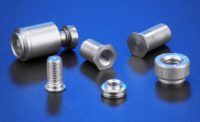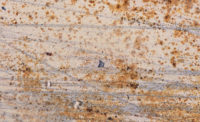The properties of stainless steel, such as hardness, luster and corrosion resistance, are ideal for myriad applications. The material is used in cookware, cutlery, surgical instruments, appliances, boat components, plumbing fixtures, mixing tanks and other applications.
It’s also good for threaded fasteners. Swedish company BUMAX is among the world’s top producers of stainless steel fasteners. Using hot forming, cold forming and machining, BUMAX manufactures stainless steel fasteners at a factory in Åshammar, Sweden, in the heart of the country’s steel district.
The company has deep Swedish roots, dating back to Åshammar Forging & Nail foundry, which was founded in 1660. The Åshammar Bolt Factory was established in 1899, and in 1926 the company was one of the first manufacturers in the world to produce austenitic stainless steel fasteners. The company became BUMAX in 1997.
Stainless steel fasteners are more expensive than fasteners made from carbon steels, but the higher cost is easily justified in applications that require strength, durability, and resistance to corrosion, heat and cold.
Fasteners Assemble Prosthetic Joints
The Niagara Foot is an affordable, high-performance prosthetic foot designed for individuals with active lifestyles. The All-Terrain Knee is a mechanical prosthetic knee joint for people with above-knee amputations. Both prosthetics can be used in aquatic environments, since they purely work mechanically. However, this requires that all components are resistant to saltwater, including the screws.
“We tried a variety of stainless steel screws when developing the waterproof knee joint, but the BUMAX SDX 109 was the only screw that provided both the strength and corrosion resistance we required,” explains Jochen Weigel, co-owner of DOI ortho-innovativ.
Super duplex stainless steel fasteners are unique because they combine super high-strength with excellent corrosion resistance compared with alloy steel fasteners. They have two-phase microstructures containing ferrite and austenite and are cold-headed and thread-rolled.
“The SDX 109 is from our high-strength super duplex fastener range. It provides excellent mechanical properties and exceptional resistance to general crevice, pitting and stress corrosion,” says Klaus Vogt, business development manager at BUMAX. “Due to their high levels of chromium and molybdenum, super duplex grades provide even greater corrosion resistance than duplex grades.”
Ship-Shape Fasteners
The catamaran has two rudders. Each is secured with two BUMAX 109 A4 screws. The high molybdenum content of the fastener gives it high strength, and, importantly for a marine environment, high corrosion resistance.
The BUMAX 109 is used for water jets, subsea equipment, pumps, valves, wind turbines, high-pressure equipment, nuclear plants, submarines, particle accelerators and many other applications where commodity A4 fasteners are inadequate. They provide greater safety and will last significantly longer than standard fasteners.
“We originally used standard stainless steel A4 screws to fasten the rudders, but as the rudders come under very high tension when turning through the water at speed, we found that these screws were bending and eventually breaking,” says Aron Steinmann, CEO of Scheurer Bootswerft. “Even a small bend in these fasteners can alter the angle of the rudder, which reduces performance. Importantly, the high-strength BUMAX screws can cope with this high tension to keep the rudder at the correct angle while maintaining corrosion resistance in saltwater environments.”
Scheurer Bootswerft has also found that BUMAX fasteners can cope with sudden impacts, for example when the rudder hits debris in the water.
“The screws fastening the rudder are a simple but essential part of the catamaran. Their failure can be the difference between winning or losing a race,” says Steinmann. “They simply cannot be allowed to fail.”
Strong Clamping
For examples, BUMAX 109 screws are a key component of the Zero-Point clamping systems produced by Andreas Maier GmbH & Co. Based in Fellbach, Germany, Andreas Maier makes work-holding products for machine tools. The company’s clamping modules are used in milling processes and turning centers to enable fixture and workpiece changes within seconds.
Andreas Maier previously used carbon steel screws (class 10.9 and 12.9) with corrosion protection for its Zero-Point products. However, the company required a more durable fastener.
“Our Zero-Point clamping systems require a maximum stiffness, strength and vibration tolerance, so we were looking for a fastener that would outperform normal stainless steel,” explains Christina Holm, product manager for Zero-Point systems. “BUMAX screws were the only fastener that fully met all of our tensile tests for extreme loading scenarios.”
BUMAX 109 and BUMAX 109 Ultra screws are now used to secure the modules, providing extremely high holding forces. (BUMAX 109 Ultra is used for some screws because a particular head cap can only be manufactured in BUMAX Ultra steel.) Despite the forces and vibration associated with machining processes, the fasteners prevent any movement or lifting off of the support flange of the clamping modules.
“An example is our K20 Clamping Module, which generates a pull-in and locking force of up to 20 kilonewtons and a holding force of 55 kilonewtons,” says Holm. “BUMAX 109 Ultra screws are stable against static and dynamic forces during the machining process, even under extreme forces.
“Importantly, BUMAX screws are also available in a range of sizes, which makes them suitable for all our zero-Point clamping modules, including pneumatic, hydraulic and automation modules,” she continues. “High-strength and vibration-tolerant BUMAX screws ensure our customers benefit from components with the highest level of quality, accuracy and operational safety.”
For more information on stainless steel fasteners, click www.bumax-fasteners.com.











